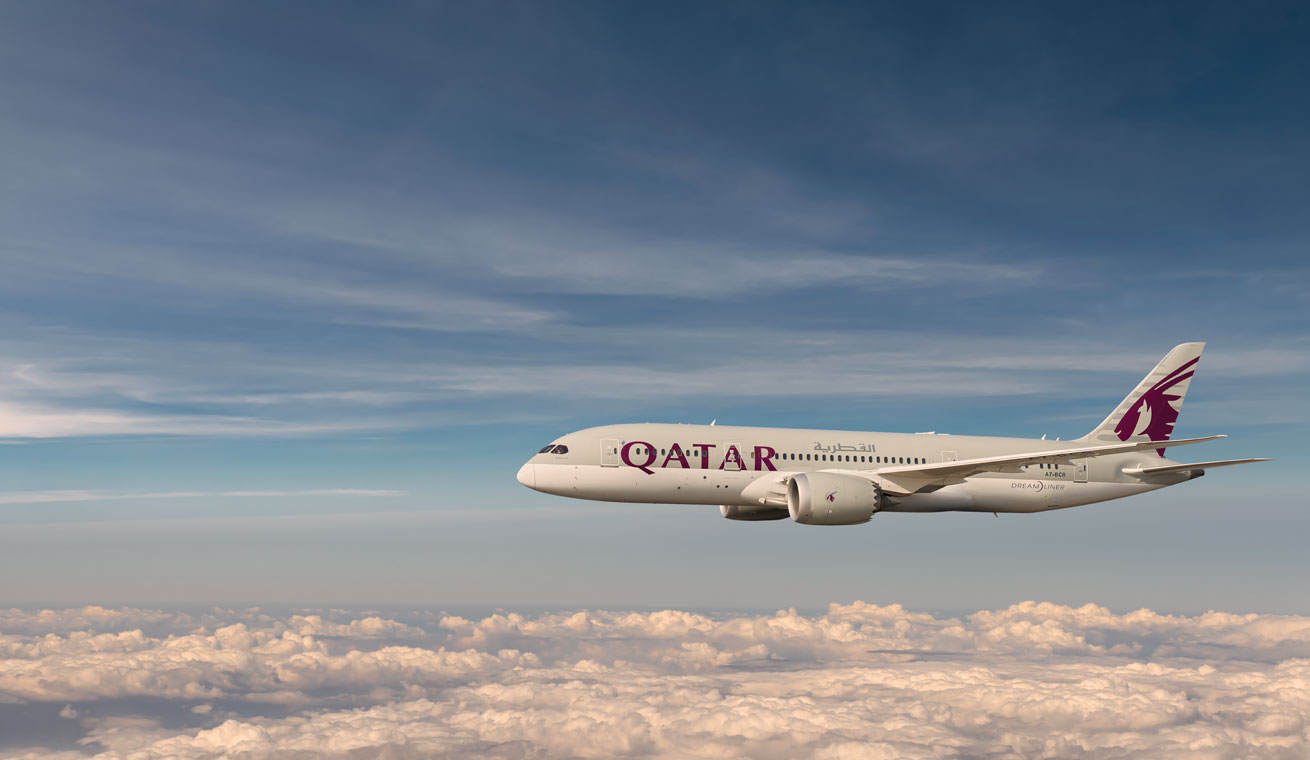Qatar Airways to seal deal with South Africa’s largest regional airline: reports

The Qatari airline has yet to publicly comment on the report, which comes amid talks over an equity investment in an airline in the southern part of Africa.
Qatar Airways is reportedly sealing a deal to purchase a stake in Airlink, South Africa’s largest regional airline, though no final deal has been reached.
Sources privy to the matter told Financial Times (FT) on Friday that detailed talks over the upcoming investment are underway. One source told the British daily news outlet that Airlink was in discussions over “various opportunities” with the Qatari side for “some time”.
Airlink’s chief executive Rodger Foster said that his airline was “always exploring opportunities and is in conversations with several existing airline partners” in response to a request for a comment from FT.
“However, we have not committed to any binding strategic equity investment,” Foster noted.
Qatar Airways Group Chief Executive Officer, Badr Mohammed Al-Meer, first revealed that the airline was “in the final stages” of an equity investment in an airline in “the southern part of Africa” in May.
“We are at the final stage of an equity investment in an airline in the southern part of Africa. This airline will help us and complement the operation of Kigali,” Al-Meer told a panel at the Qatar Economic Forum on May 15, without disclosing the airline’s name.
In May, South African Airways (SAA) dismissed rumours about entering into an equity partnership with Qatar Airways.
In new remarks on the deal last week, Al-Meer said the airline was in the “final, final stages” of completing the investment, also without naming Airlink, FT reported. His remarks came on the sidelines of the Farnborough Air Show in the United Kingdom.
“This airline in the southern part of Africa was important to us to create a network and cover every city in the continent,” he told the press, as quoted by the FT, noting that the airline was the “missing part of the equation” in Qatar Airways’ network in the region.
According to FT, South Africa’s air licensing rule stipulates that South Africans must control 75 percent of domestic airlines, representing a key sticking point in any deal.
Joachim Vermooten, a transport economist at the University of Johannesburg, told the British newspaper that those requirements are slowly being eased to pave the way for more investments.
Qatar Airways serves at least 31 destinations in Africa, where passenger traffic is expected to increase as the region witnesses economic development.
Rwanda stands among the Qatari flag carrier’s most important investment destinations in the region. In 2019, Qatar Airways acquired a 60 percent stake of Rwanda’s Bugesera International Airport, which is currently under construction.
Meanwhile, in June, RwandAir’s CEO Yvonne Makolo told FT that Qatar Airways was set to acquire a 49 percent stake in Rwanda’s national carrier as early as July.
“It’s been going on for a while, we have been discussing it for almost five years. So, now, we’re really at the tail-end of it,” she said at the time.
Qatar Airways and RwandAir had signed a “milestone” codeshare agreement that was inked in 2021.
Between 2022 and 2023, both sides operated around 156 flights between Doha and Kigali. During the same period, the airline witnessed a 10 percent month-on-month growth, resulting in more than QAR 7m (around $2m) in revenues.
In May last year, Qatar Airways Cargo launched its first hub, in partnership with RwandAir, for its cargo handling.
Royal Air Maroc, ranked as the Best Regional Airline in Africa by Skytrax, is also a key regional partner. In June last year, Qatar Airways enhanced its services to Casablanca and Marrakesh.
Related
Qatar emphasizes importance of reaching agreement between US, Iran
CAIROQatar's Prime Minister Sheikh Mohammed bin Abdulrahman Al-Thani stressed the critical need for an agreement between the US and
International Women’s Day: Seeking a Balance with Ghada Al Subaey
1309’s Ghada Al Subaey of Qatar celebrates the many layers of femininity in her recent drop, called Labyrinth of Light. This International Women’s Day, the
Discover Ooredoo Plans and Services in Qatar
Ooredoo is the household name in the field of telecommunications and provides a full portfolio of telecom services: mobile plans for everyone, home
What Will The Imminent Qatar Airways Widebody Order Include?
Which Airline Alliance Do You Prefer To Fly With?












